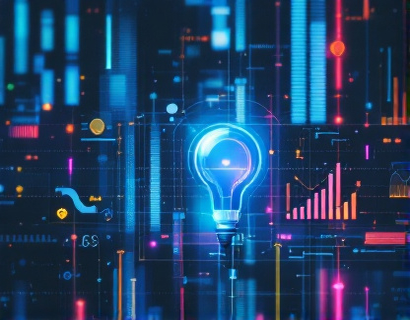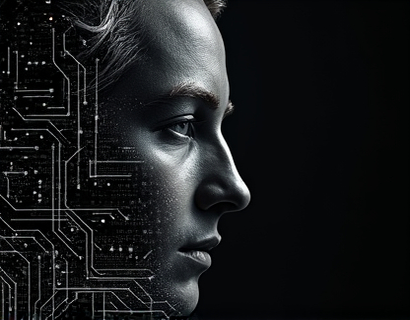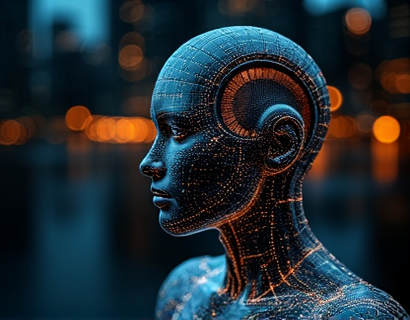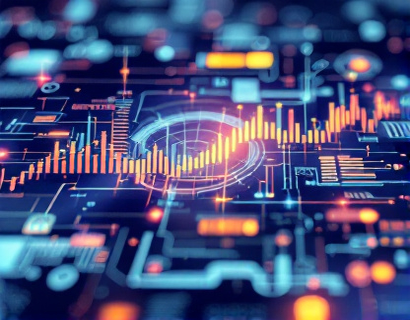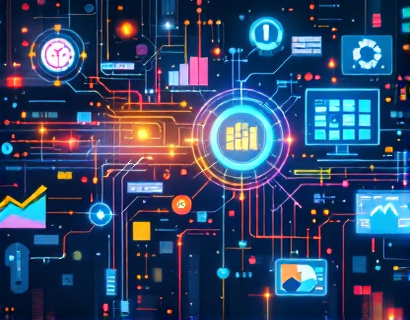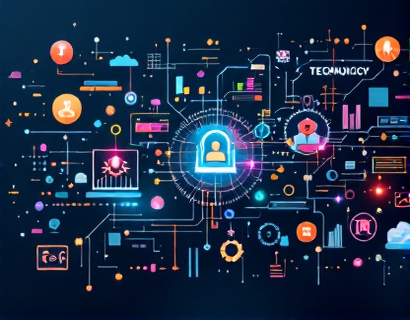Crypto and AI: Transforming Digital Experiences in the Blockchain Era
The intersection of cryptocurrency and artificial intelligence (AI) is ushering in a new era of digital transformation. This fusion is not only revolutionizing how businesses operate but also enhancing user experiences across various sectors. As tech leaders, understanding and harnessing these transformative technologies is crucial to staying competitive in the blockchain era. This comprehensive guide delves into the ways crypto and AI are reshaping digital landscapes, offering insights for tech-savvy innovators and early adopters.
Understanding Cryptocurrency and AI
Cryptocurrency, a digital or virtual currency secured by cryptography, operates on a decentralized network known as blockchain. This technology ensures transparency, security, and immutability in transactions. On the other hand, AI refers to the simulation of human intelligence processes by machines, particularly computer systems. These processes include learning (the acquisition of information and rules for using it), reasoning (using rules to reach approximate or definite conclusions), and self-correction. When combined, crypto and AI create powerful tools that can optimize and automate various aspects of digital interactions.
Enhancing Security with AI in Cryptocurrency
One of the primary benefits of integrating AI into cryptocurrency systems is the enhancement of security measures. Traditional cybersecurity methods often struggle with the evolving landscape of cyber threats. AI, however, can analyze vast amounts of data in real-time to detect and respond to anomalies and potential threats more effectively. Machine learning algorithms can identify patterns indicative of fraudulent activities, such as money laundering or hacking attempts, and take proactive measures to mitigate risks. This not only protects user assets but also builds trust in the cryptocurrency ecosystem.
Smart Contracts and AI: A Synergistic Force
Smart contracts, self-executing contracts with the terms directly written into code, are a cornerstone of blockchain technology. When combined with AI, these contracts can become even more intelligent and adaptive. AI can analyze complex scenarios and dynamically adjust the terms of smart contracts based on real-time data and conditions. For instance, in supply chain management, AI-driven smart contracts can automatically trigger payments when specific conditions, such as delivery confirmation, are met. This automation reduces delays and errors, streamlining operations and enhancing efficiency.
Personalized User Experiences through AI
The integration of AI in cryptocurrency platforms can significantly enhance user experiences by providing personalized services. AI algorithms can analyze user behavior and preferences to offer tailored recommendations, from investment strategies to product suggestions. For example, a crypto exchange can use AI to analyze a user's trading history and market trends to suggest optimal buying and selling times. This level of personalization not only improves user satisfaction but also increases engagement and loyalty.
Decentralized Finance (DeFi) and AI
Decentralized Finance (DeFi) is a rapidly growing sector that leverages blockchain technology to create financial systems without traditional intermediaries. AI plays a pivotal role in DeFi by enabling more sophisticated and efficient financial products. AI-driven algorithms can predict market trends, optimize portfolio management, and automate trading strategies. Additionally, AI can help in risk assessment and management, ensuring that DeFi platforms operate smoothly and securely. This synergy between crypto and AI is paving the way for a more inclusive and accessible financial system.
Challenges and Considerations
While the fusion of crypto and AI offers numerous benefits, it also presents several challenges. One of the primary concerns is the regulatory landscape. As both crypto and AI are relatively new and rapidly evolving fields, regulatory frameworks are still catching up. Tech leaders must navigate these regulations carefully to ensure compliance while innovating. Another challenge is the technical complexity involved in integrating AI into cryptocurrency systems. Developing robust and secure AI models requires expertise and resources. Moreover, there is the issue of data privacy and ethical considerations, as AI systems often rely on large datasets, some of which may contain sensitive information.
Case Studies: Real-World Applications
Several projects and platforms are already leveraging the power of crypto and AI to transform digital experiences. One notable example is a decentralized lending platform that uses AI to assess creditworthiness and automate loan approvals. By analyzing a wide range of data points, including financial history and social media activity, the AI system can make more accurate and fair lending decisions. Another example is a crypto-based prediction market where AI algorithms analyze vast amounts of data to provide users with insights and betting opportunities on future events. These applications demonstrate the practical and transformative potential of combining crypto and AI.
Future Trends and Opportunities
The future of crypto and AI is promising, with several trends and opportunities on the horizon. One significant trend is the development of AI-powered blockchain analytics tools. These tools can provide deeper insights into blockchain transactions, helping businesses and regulators monitor and enforce compliance more effectively. Another trend is the rise of AI-driven decentralized autonomous organizations (DAOs), which combine the autonomy of blockchain with the intelligence of AI to create self-governing entities. These DAOs can make decisions based on data-driven insights, enhancing transparency and efficiency.
Moreover, the integration of AI with other emerging technologies, such as the Internet of Things (IoT) and 5G, will further amplify the impact on digital experiences. For instance, AI can optimize the performance of IoT devices connected to the blockchain, ensuring seamless and secure communication. The combination of these technologies will lead to more intelligent, connected, and autonomous systems, revolutionizing industries from healthcare to manufacturing.
Conclusion
The fusion of cryptocurrency and AI is transforming digital experiences and business operations in profound ways. By enhancing security, enabling smart contracts, personalizing user experiences, and revolutionizing finance, this synergy is paving the way for a more efficient and inclusive digital landscape. For tech leaders, embracing these technologies is not just an option but a necessity to stay ahead in the blockchain era. By understanding and leveraging the potential of crypto and AI, businesses can unlock new opportunities and drive innovation.




